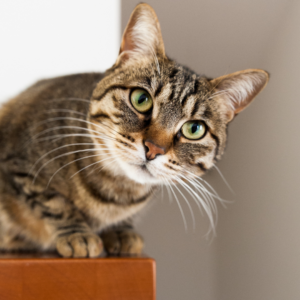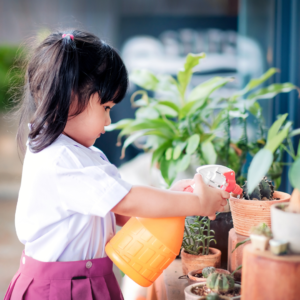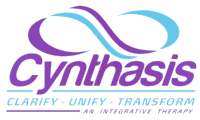Fortify yourself with a flock of friends! There is always at least one who will understand, inspire, and give you the lift you may need at the time.
George M. Adams
 I chose the above quote for one main reason. As those with Alzheimer’s and other brain diseases face life-shifting for them, it’s hard to ask for what they need. Having someone by your side who believes in you, loves you and knows your unique ways of self-expression is key. In my lifetime, I have watched many loved ones move from this world to one in between, where they may want to express themselves and can’t. Eventually, they no longer know my name. Sharing the simple things in life, like the smell and visual beauty of flowers or music, has been a way to connect.
I chose the above quote for one main reason. As those with Alzheimer’s and other brain diseases face life-shifting for them, it’s hard to ask for what they need. Having someone by your side who believes in you, loves you and knows your unique ways of self-expression is key. In my lifetime, I have watched many loved ones move from this world to one in between, where they may want to express themselves and can’t. Eventually, they no longer know my name. Sharing the simple things in life, like the smell and visual beauty of flowers or music, has been a way to connect.
Our brain health is extremely valuable and, for many, unpredictable. As many as 6.5 million Americans age 65 and older live with Alzheimer’s. Many more are expected to develop the disease as the population ages—unless ways to prevent or delay it are found.

 We can’t control the unpredictable, but there are things we can control, such as our destructive thoughts, diet, exercise, mental stimulating exercises, good sleep habits leading to good sleep, stress management, vascular health, and social engagement.
We can’t control the unpredictable, but there are things we can control, such as our destructive thoughts, diet, exercise, mental stimulating exercises, good sleep habits leading to good sleep, stress management, vascular health, and social engagement.
HelpGuide.org has separated the prevention categories into seven pillars. Think of it like the pillars of your house holding up the roof with your brain as the roof. Each pillar is interconnected.
For example, when you go for a run, your vascular system is stronger, so why not include running or other aerobics into an exercise routine?
Social engagement is a great time to have new experiences, whether going to a concert to be introduced to new music, studying a new language together or picking up a new game that will use my thinking brain. Here too, we are working with more than one pillar.
HelpGuide.org states the longer—and stronger—your brain will stay working. You’ll also be better able to reduce your risk of developing Alzheimer’s disease and other types of dementia or delay the onset of more severe symptoms.
And to help us keep a strong prevention program, there is Self-Spotting. We can use this to clear any doubt, resistance, or negative thinking pattern. For those less familiar with it, we find a place to look where we can connect to our bodies and feel grounded and present in the moment the best possible. So if you look around, you may find something soothing and calming to look at or a direction to gaze that is relaxing. Once you do find a way to settle into your seat and keep your eyes anchored there as you let your thoughts go to something important and meaningful to contemplate, such as I know I should do these things but I don’t. Once you find an eye position, you can continue to contemplate the thought, which will lead to many thoughts and sensations with your eyes opened or closed. More details on the process is here.
a place to look where we can connect to our bodies and feel grounded and present in the moment the best possible. So if you look around, you may find something soothing and calming to look at or a direction to gaze that is relaxing. Once you do find a way to settle into your seat and keep your eyes anchored there as you let your thoughts go to something important and meaningful to contemplate, such as I know I should do these things but I don’t. Once you find an eye position, you can continue to contemplate the thought, which will lead to many thoughts and sensations with your eyes opened or closed. More details on the process is here.
For myself, it is the resistance to using the Elevate app, which is to strengthen cognition. My school-age parts do not like it because I feel “dumb.” It takes me back to grade school, which was a struggle. I know: That is all the more reason why I should do it. But, as you can hear, it’s the should in the sentence that gets me every time. My fantasy self says, well, maybe it will go away. And, as I Self-Spot on this issue, I discover the younger part that wants the help to learn. My present-day adult can be there for her and make the commitment to sit down and do it together at least three times a week. I’ll keep you posted.
This example shows you the gift of Self-Spotting. It can help shift what is stuck. If you need more help, feel free to contact me.
 In the Curious Voyage: A Rule-Breaking Guidebook to Authenticity, I speak of Bruce Lipton’s book The Biology of Belief. (Pages 14-15). He is suggesting we can change ourselves at a cellular level. The question is will that work for me to prevent Alzheimer’s? We do not know for sure for each person, but we can try. Beliefs are akin to seeds we plant into the soil of our subconscious. I can change the seed to something else to get a different plant. But even after I plant it, I still need to water my garden, weed out whatever is popping up and crowding out the plant I want to grow. I also need to be patient. Plants grow over time. A fascinating video watch from him is here.
In the Curious Voyage: A Rule-Breaking Guidebook to Authenticity, I speak of Bruce Lipton’s book The Biology of Belief. (Pages 14-15). He is suggesting we can change ourselves at a cellular level. The question is will that work for me to prevent Alzheimer’s? We do not know for sure for each person, but we can try. Beliefs are akin to seeds we plant into the soil of our subconscious. I can change the seed to something else to get a different plant. But even after I plant it, I still need to water my garden, weed out whatever is popping up and crowding out the plant I want to grow. I also need to be patient. Plants grow over time. A fascinating video watch from him is here.
Visualization is another great tool to help us shift thoughts and energy. In The Curious Voyage, I speak about directing our actions and creating a life we desire, having certain ingredients, including desire, imagination and expectation. Years ago, a teacher I studied, Lazarus, said those are the three key ingredients to manifestation. Shakti Gawain, the author of Creative Visualization, says to put our desired vision into a pink bubble and send it out into the universe, saying may this or something greater come to me easily and effortlessly.
including desire, imagination and expectation. Years ago, a teacher I studied, Lazarus, said those are the three key ingredients to manifestation. Shakti Gawain, the author of Creative Visualization, says to put our desired vision into a pink bubble and send it out into the universe, saying may this or something greater come to me easily and effortlessly.
I suggest integrating the ways of visualizing that resonate best with you. As you do it, include feeling the vibration of what you desire, including all your senses in the process, and noticing the strength of your desire and imagination. Clear whatever feels sticky or switch it until it is what you truly desire feels possible, then let it go and see what happens.
References:
